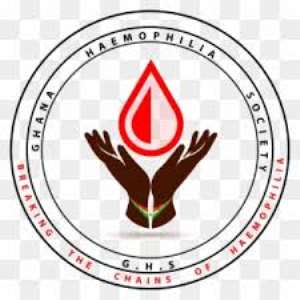
Ghana’s estimated number of people living with haemophilia, a bleeding disorder, stands at approximately 7,131, according to Dr. Adwoa Agyemang Adu Gyamfi, a member of the Haemophilia Society of Ghana.
This figure represents about 8 percent of the 93,985 cases reported across Africa, as indicated in the World Federation of Haemophilia’s 2023 Annual Global Survey. However, Dr. Gyamfi expressed concern that only 525 cases have been officially diagnosed in Ghana — a number she described as “critically low” — and called for urgent action to close the gap in diagnosis and access to care.
“These numbers suggest that thousands of people in the country may be living with bleeding disorders without knowing it — and many of them are women and girls,” she stated.
Globally, 390,630 individuals have been identified with bleeding disorders. Of this number, 56 percent have haemophilia, 26 percent are living with von Willebrand Disease (vWD), and the remaining 18 percent have other types of bleeding disorders. “Of this global population, 65 percent are male and 34 percent are female,” Dr. Gyamfi noted, speaking to journalists as Ghana marked the 2025 World Haemophilia Day.
Observed annually on April 17, World Haemophilia Day aims to raise global awareness about inherited bleeding disorders. This year’s theme, “Women and Girls Bleed Too,” seeks to challenge the widespread misconception that bleeding disorders only affect males.
“Many women also live with symptoms of undiagnosed or misdiagnosed bleeding disorders, often without treatment or support,” Dr. Gyamfi emphasized. “There is a significant representation of females in the national haemophilia estimates, many of whom experience symptoms that go unnoticed or are wrongly attributed to other causes.”
Dr. Eunice Ahmed Agyemang, a hematologist, echoed these concerns. She described bleeding disorders as a “silent burden” on women and girls, who may suffer symptoms as carriers of the haemophilia gene or from other inherited conditions like von Willebrand Disease.
“Women and girls may experience heavy, prolonged menstrual bleeding, excessive bleeding during childbirth or surgery, and unexplained bruising,” she said. “Too often, they are told that heavy periods are normal — but in many cases, this could be a sign of an underlying bleeding disorder. We must listen to them and take their symptoms seriously.”
Dr. Agyemang further explained that bleeding disorders occur when the blood does not clot properly due to missing or malfunctioning components essential for clotting. As a result, affected individuals may experience prolonged bleeding — either spontaneously or after an injury, surgery, or childbirth.
She noted that bleeding disorders may be inherited, passed down from one or both parents through their genes, or acquired later in life due to other medical conditions, certain medications, or unknown factors.


